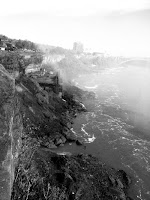“APE” David Gissen
Dialectic/Mimetic
•of the nature of logical argumentation/exhibiting or the nature of imitation
“it enables us to establish linkages between buildings and nature that are more dialectical than mimetic”
Metabolize
•the process of converting material to energy
“examining the ramifications of building as sites that metabolize both new concepts and new forms of nature matter.”
“Hyper-locality On the Archeology of the Here and Now in the Architecture of R&Sie” Andreas Ruby
Hyper-locality
•overstimulated/ties to a place or area
“This work on the territory expands its traditional definition beyond the dimensions of ground, earth and site in favor of a material polyphony in all its aggregate conditions -the materiologies of a hyper-local architecture that emerges in place of the old typologies”
Threat
•indication of intent to harm or possible trouble
“Threat Inhabitation: the embodiment of the danger of a place by the architecture”
“I'mlostinParis” R&Sie
Rainwater
•water that has fallen as rain, which usually has relatively small amounts of minerals dissolved in it
Disseminated
•to distribute or spread something, especially information, widely, or become widespread
“Rainwater mixed with bacterial preparations disseminated through three hundred light-refracting glass beakers to the surfaces of twelve hundred ferns. The neighborhood is both attracted by the green aspect and repulsed by the potion and the process. Eros is not so far from Thanatos”
“Regenerative Landscapes- Remediating Places” Anneliese Latz
Wasteland
•barren land, uninhabited wilderness worthless for cultivation
“This transformation of industrial wasteland in a new urban landscape has had a strong economic and social impact on the depressed neighborhoods in the immediate vicinity.”
Bourgeois
•of the middle or middle class, being in the middle
“In the bourgeois world, nature has been cultivated in contrast to technology.”
“Weeds” David Gissen
Dirt
•a foul or filthy substance, soil
“dirty when they are 'matter out of place.' Nothing is inherently dirty or dirt like; rather, dirt is a social category that we assign to specific types of social relations. Dirt lacks any fundamental physical quality. Instead, it is a relationship.”
Marginalized
•to place in a position of barely acceptable importance, influence or power
“examine how life based subnatures are simultaneously marginalized and embraced in architectural discourse”.
“Starting Points” Gilles Clement and the Recuperation of Space” Matthew Gandy
Biotic Archipelago
•relating to life and living organisms, or caused by living organisms
•a group or chain of islands
"These patchworks of color along canals, railways tracks, and other marginal or interstitial spaces form a distinctive aesthetic and biotic archipelago that has been systematically neglected."
•relating to life and living organisms, or caused by living organisms
•a group or chain of islands
"These patchworks of color along canals, railways tracks, and other marginal or interstitial spaces form a distinctive aesthetic and biotic archipelago that has been systematically neglected."
Transient
•Short in duration, lasting only a short time, coming to an end, disappearing or changing.
• not permanently settle in place, staying for a short while and moving.
"These spontaneous pockets of nature seem all the more poignant for their precarious existence as largely unnoticed by-products of modernity. We routinely overlook an array of transient or neglected spaces -- widely characterized as waste ground -- that develop their own structural forms and ecological assemblages without the precise imprint of human design."
•Short in duration, lasting only a short time, coming to an end, disappearing or changing.
• not permanently settle in place, staying for a short while and moving.
"These spontaneous pockets of nature seem all the more poignant for their precarious existence as largely unnoticed by-products of modernity. We routinely overlook an array of transient or neglected spaces -- widely characterized as waste ground -- that develop their own structural forms and ecological assemblages without the precise imprint of human design."

















